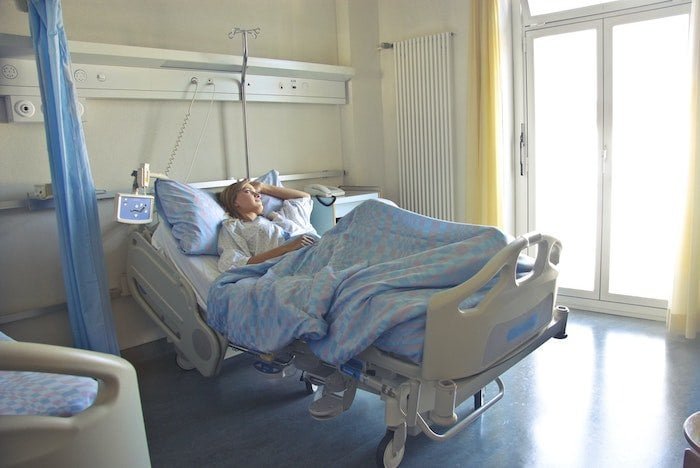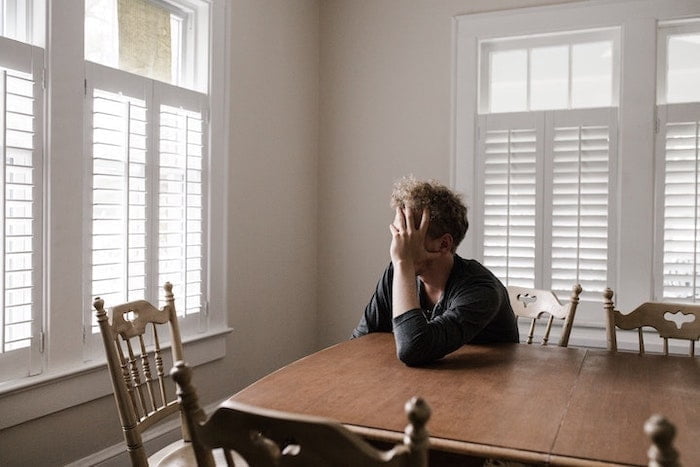Quick links for Eating Disorders
- Is there a link between alcohol problems and eating disorders?
- When does drinking alcohol become a problem?
- Eating disorders and alcohol – What is drunkorexia?
- How can an addictive personality impact eating disorders?
- How dual diagnosis can create a drink problem alongside an eating disorder
- Why do people develop both eating disorders and alcohol problems?
- Risks of drinking and eating disorders
- Factors that influence alcoholism and eating disorders
- Is there treatment for people with eating disorders and a dual diagnosis?
- Final thoughts on eating disorders
There are many similarities between the nature of a substance misuse disorder and an eating disorder.
Both are mental health illnesses characterised by compulsive behaviours. The habits formed will likely result in many negative consequences.
Despite this, the person with either condition is unable to stop the habit without the help of professional treatment.
Is there a link between alcohol problems and eating disorders?

Person with an eating disorder preparing food
There is a high correlation between people having both an alcohol problem and an eating disorder. [1]
Both of these illnesses are also linked to mental health issues.
It’s important that all conditions are considered together, especially in terms of treatment.
Eating disorders and alcohol
Hundreds of thousands of people in the UK are living with eating disorders.
This is where a person uses food as a way to cope with uncomfortable thoughts and feelings.
They may also use various purging methods to control calorie intake, such as using laxatives, vomiting, and excessive exercise.
Some people will experience feelings of guilt and shame around these behaviours.
Eating disorders usually develop in teenage years and will often exist throughout life, much like a person diagnosed with alcoholism.
Even at the point a person recovers, an eating disorder will still be a condition they live with but manage daily. With time and treatment, it can become easier to live with.
Alcohol and anorexia
Anorexia is when a person restricts their calorie intake.
The person has a distorted body image, believing that they’re overweight when they are not.
The illness is characterised by people being unable to eat, or eating limited amounts and purging.
There are roughly 266,300 people who have anorexia in the UK. [2]
Although alcohol use co-exists less often in anorexia than with other eating disorders, where it does exist it’s usually used to suppress appetite.

Patient lying in a hospital bed due to an eating disorder
Alcohol and bulimia
Alcohol misuse is more common for people with bulimia than it is for those with anorexia nervosa.
It’s reported that there are around 443,800 people with bulimia in the UK. [3]
It’s common that a person will binge food and alcohol at the same time and then (often excessively) purge afterwards.
With binging there is an increase of risky behaviours (mentioned below).
Alcohol and binge eating
Binge eating is similar to bulimia in that it includes binge eating habits. However, it doesn’t include the compensatory behaviours around controlling weight.
Research reports that 1,398,000 people are binge eaters in the UK. [4]
It’s more common in adults than teens, although it can begin in teen years. Where binge eating and alcohol misuse co-exist, they often occur together.
There is no purge afterwards. Often, regular binge eating and drinking results in weight gain.
When does drinking alcohol become a problem?

Man with an eating disorder sat at a table holding his head
Drinking alcohol is legal. It is often glamourised in the media. It’s also the go-to for millions when there are celebrations and commiserations.
In 2018, 82% of adults said they had drunk alcohol in the last year. (5)
Interestingly, people in managerial and professional roles are most likely to say they have drunk in the last week.
Many people have drinking problems but don’t access treatment due to the stigma attached to it.
Alcohol can cause several types of cancer (including throat, breast, liver, and colon) and any level of consumption increases the risk of developing cancer in general.
Regular alcohol consumption increases the risk of other illnesses too. Alcohol is a substance with many toxins that the body is unable to metabolise effectively when it is consumed regularly and/or in large amounts.
These toxins remain in the body and damage vital organs.
Unfortunately, many people don’t understand the effects of alcohol until a lot of damage has been caused.
There are, however, behavioural symptoms that suggest that drinking may be a problem. These can indicate that alcohol is having a significant effect on your organs and bodily systems.
Symptoms that drinking has become a problem include:
- Drinking alone
- Thinking about drinking
- Increased tolerance and drinking more
- Blackouts
- Only wanting to do things where drinking alcohol is included
The World Health Organisation reported that 3 million deaths occur every year due to alcohol consumption. [6]
Drinking causes dependency for millions of people around the world.
Due to the nature of the substance, when drunk regularly it can cause the bodily systems to require alcohol to function normally.
This is due to how it impacts the chemicals in the brain and hormonal balances. When a dependency has developed it becomes increasingly difficult to quit due to the withdrawal symptoms.
What are alcohol withdrawal symptoms?

Eating disorder patient looking tired and sick
These symptoms can occur when alcohol begins to leave the body:
- Shaking
- Sweating
- Mood swings
- Fluctuations in blood pressure and heart rate
- Sickness and diarrhoea
- Hallucinations
- Seizures
Eating disorders and alcohol – What is drunkorexia?

Man with an eating disorder talking to a therapist
Drunkorexia is a relatively new term and not a diagnosable condition.
It’s important to recognise it, though, as it’s a behaviour that many teens and young adults practise.
Drunkorexia is where the calories from food are replaced by the calories gained through drinking alcohol.
It’s especially common for young people at college and university where there is often pressure to drink.
It’s incredibly unhealthy as it creates a reduction in vitamin and nutrient intake. This can cause serious conditions affecting the vital organs.
How can an addictive personality impact eating disorders?

Therapist and eating disorder patient speaking in a home
Research shows that addictive personalities usually score high on both impulsivity and neuroticism (negative feelings linked to mental health conditions). [7]
A person predisposed to having an eating disorder will also have many factors conducive to a drinking problem as well.
In their causes and likelihood factors, the two illnesses are very similar.
Both addiction and eating disorders are compulsive mental health conditions.
Despite how dangerous both can be in terms of health outcomes, the person suffering is often unable to stop the behaviours.
How dual diagnosis can create a drink problem alongside an eating disorder

Two people discussing an eating disorder
Dual diagnosis is where both a mental health condition (such as depression, anxiety, or bipolar) and addiction exist alongside one another.
Many people with mental health symptoms will use alcohol to self-medicate and try to ease their mood and distressing feelings.
Drinking also helps to create and worsen mental health problems.
Why do people develop both eating disorders and alcohol problems?

Medical professional taking notes about a patient’s eating disorder
Both food and alcohol are used as coping mechanisms and as a means of “escape”. This might be linked to mental health problems, stressful events, or historic trauma.
Research indicates that it’s likely that there will be a history of family addiction where either illness exists. [8]
It’s easy to assume that alcoholism and eating disorders co-exist because people eat more due to intoxication, but this isn’t necessarily the case.
Actually, for those with eating disorders, alcohol is often used as a way to regulate mood.
Risks of drinking and eating disorders

Two people taking notes and discussing eating disorders
Where both illnesses exist, the outcomes tend to be worse.
This is due to the increased strain the body and its functions are put under.
High-risk behaviours induced by eating disorders include:
- Unprotected sex
- Suicidal behaviours
Psychological risks of eating disorders include:
- Memory problems
- Lack of concentration and focus
- Mood swings
- Paranoia
- Restlessness
- Low motivation
- Suicidal thoughts
Physical risks of eating disorders include:
- Dizziness, fatigue
- Malnutrition and dehydration
- Anemia
- Less effective immune response
- Diarrhoea and constipation
- Heart problems
- Organ damage
- Unexpected death
Factors that influence alcoholism and eating disorders

Young person in therapy for an eating disorder
There are many factors that influence a person’s risk of developing an eating disorder or alcohol problem.
Genetics and a history of addiction and mental health in the family increase the likelihood of the two developing.
Aside from the familial aspect, there are both internal and external triggers that can have a significant impact.
Stressful events, traumatic memories and social influences are also known to increase risks.
Is there treatment for people with eating disorders and a dual diagnosis?

Therapist sat with a patient and discussing eating disorders
Due to the similarities and overlaps between alcohol problems, mental health issues, and eating disorders, treatment for all three provides the optimum structure of recovery.
Rehabilitation for these conditions can take place alongside each other.
A private rehabilitation clinic where a person is able to stay for a set length of time provides the most solid and safe environment for a person to begin to heal.
Abstinence may be the goal for alcohol problems, but where eating disorders exist, the goal is adapting behaviours due to the necessity of food to survive.
This means that for eating disorders there is a focus on building a healthy relationship around eating, food, and body size.
In order to support people around thoughts and feelings, Cognitive Behavioural Therapy and Dialectical Behavioural Therapy are provided. These therapies provide strategies that enable a person to control their thoughts.
Once a person becomes aware of their thoughts and how to control them, they’re able to adapt and change their behaviour. These therapies have been proven to effectively treat addiction and eating disorders.
Other vital treatments included in rehabilitation programmes are:
- Nutritional therapy
- Mindfulness
- Brief interventions
- Yoga
- Art and music therapies
How can I access a rehab programme for an eating disorder?

Therapist and patient talking to each other about eating disorders and addiction
There are recovery centres all over the UK.
Many clinics will have different specialities. It’s essential that you find the programme that suits your needs specifically, especially when it comes to alcohol and eating disorders as a comorbid condition.
A referral by OK Rehab will ensure you access the most appropriate clinic.
When you contact our team, we run a short pre-assessment and then guide you through your options.
Our team will then take care of all the arrangements up to your admission date.
Final thoughts on eating disorders

Person seeking help for an eating disorder from a medical expert
There is a huge correlation between alcohol misuse and eating disorders.
The two can exacerbate and influence one another.
In order for treatment for either condition to have the optimum results, alcohol use and eating habits must be addressed at the same time.
Local rehabilitation programmes support a person to begin a life of healing.
This is the safest way to begin recovery as a team of professionals is able to ensure a person’s psychological and physical needs are met.
No matter how long an alcohol problem or eating disorder has existed, healing is always possible and the mind and body can recover.
References for eating disorders
- https://www.proquest.com/openview/3717e2590e7de2848fb9f215c6e80e46/1?pq-origsite=gscholar&cbl=49142
- https://cks.nice.org.uk/topics/eating-disorders/background-information/prevalence/
- https://www.ncbi.nlm.nih.gov/pmc/articles/PMC6876496/
- https://www.beateatingdisorders.org.uk/get-information-and-support/about-eating-disorders/how-many-people-eating-disorder-uk/
- https://files.digital.nhs.uk/A3/2F03E4/HSE18-Adult-Health-Related-Behaviours-rep-v2.pdf
- https://www.statista.com/statistics/367890/alcohol-related-deaths-facts-worldwide/
- https://www.who.int/news-room/fact-sheets/detail/alcohol
- https://pubmed.ncbi.nlm.nih.gov/29547799/






